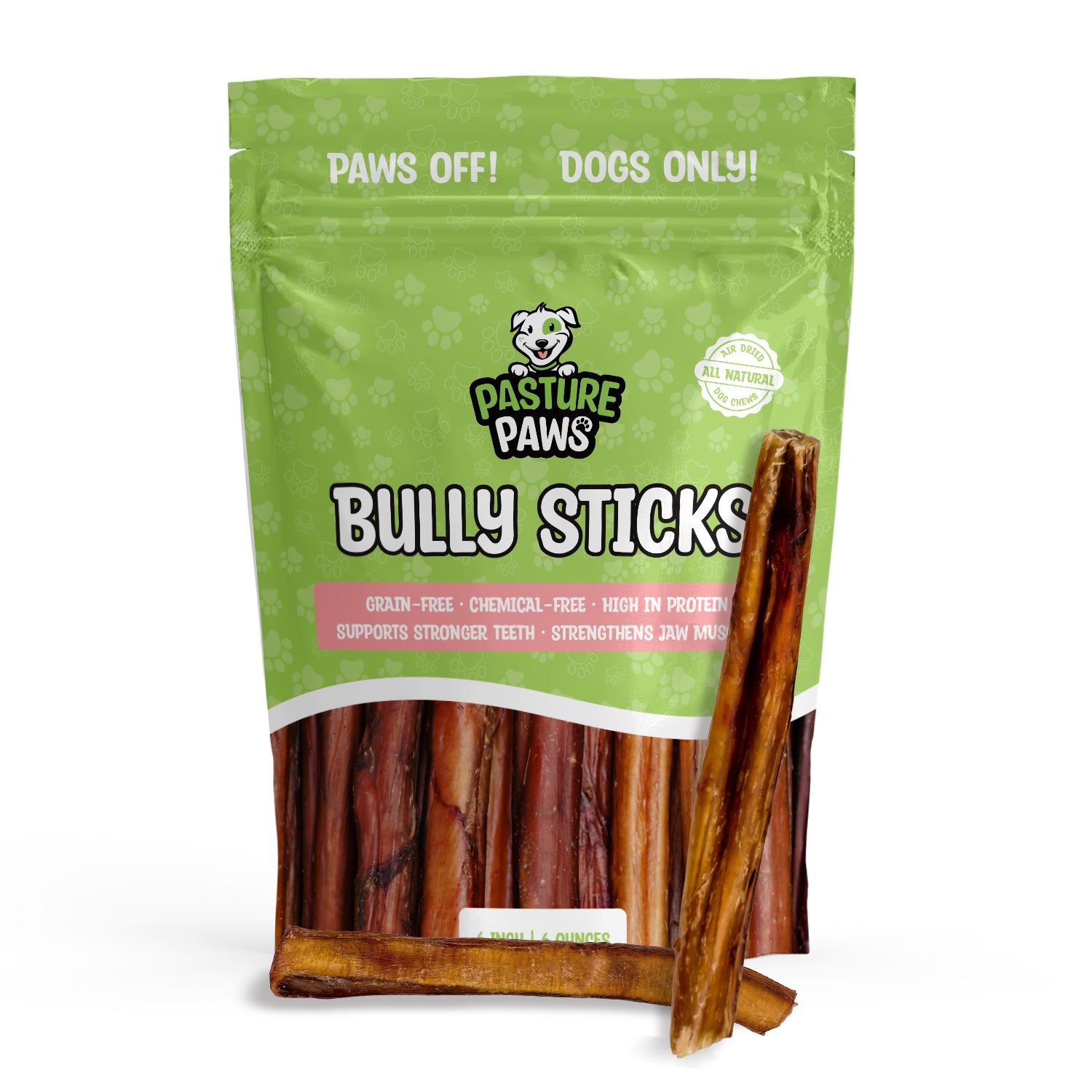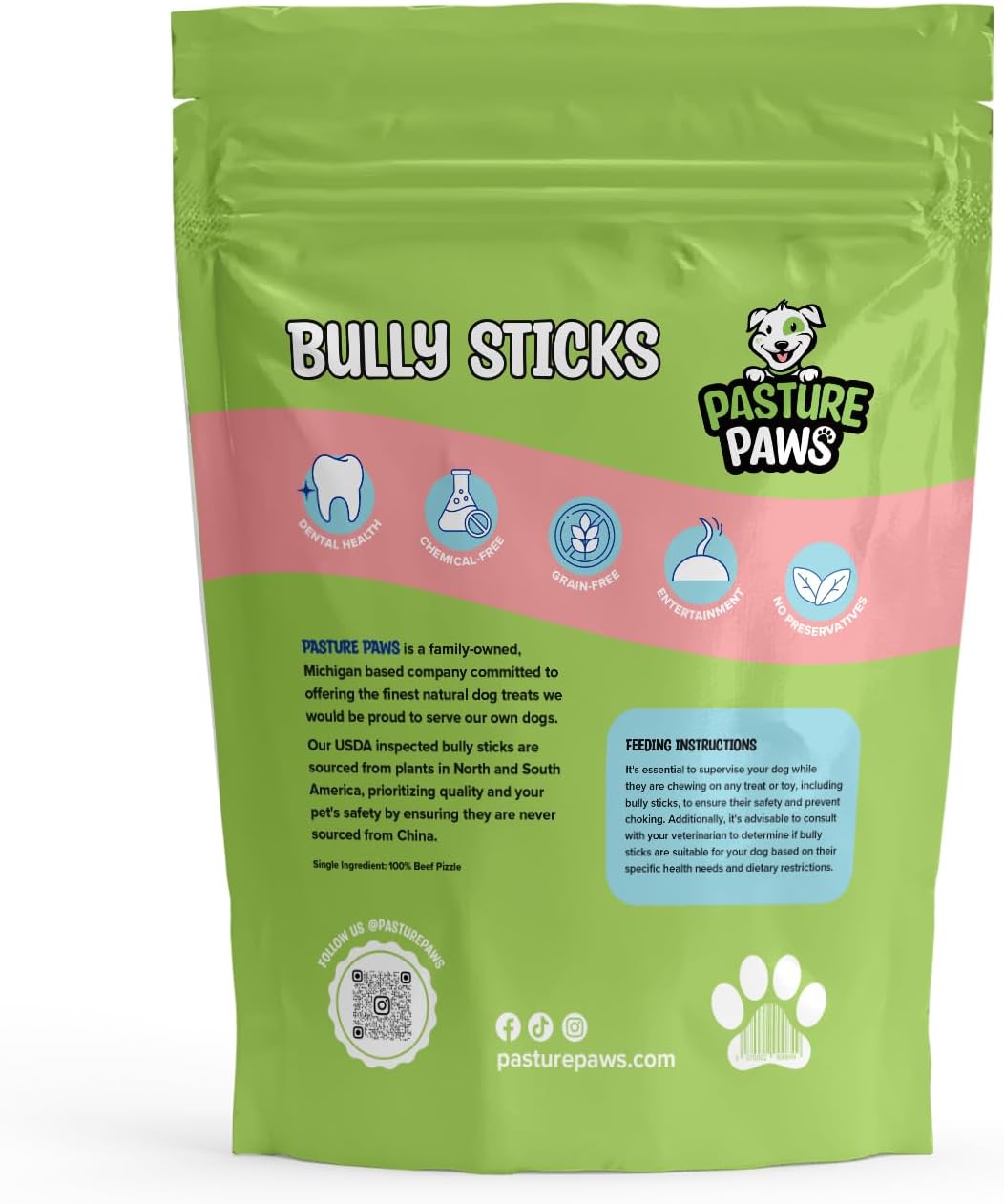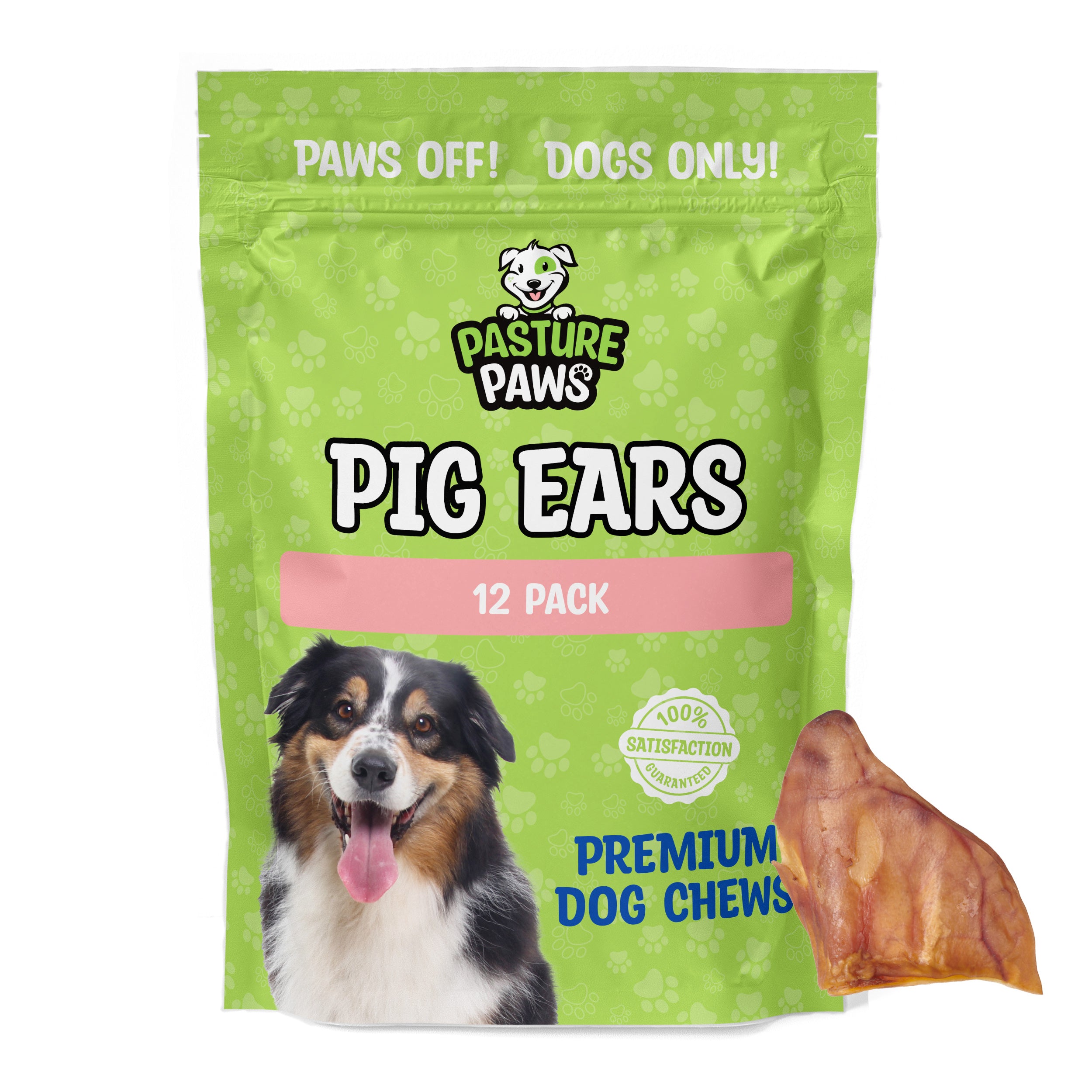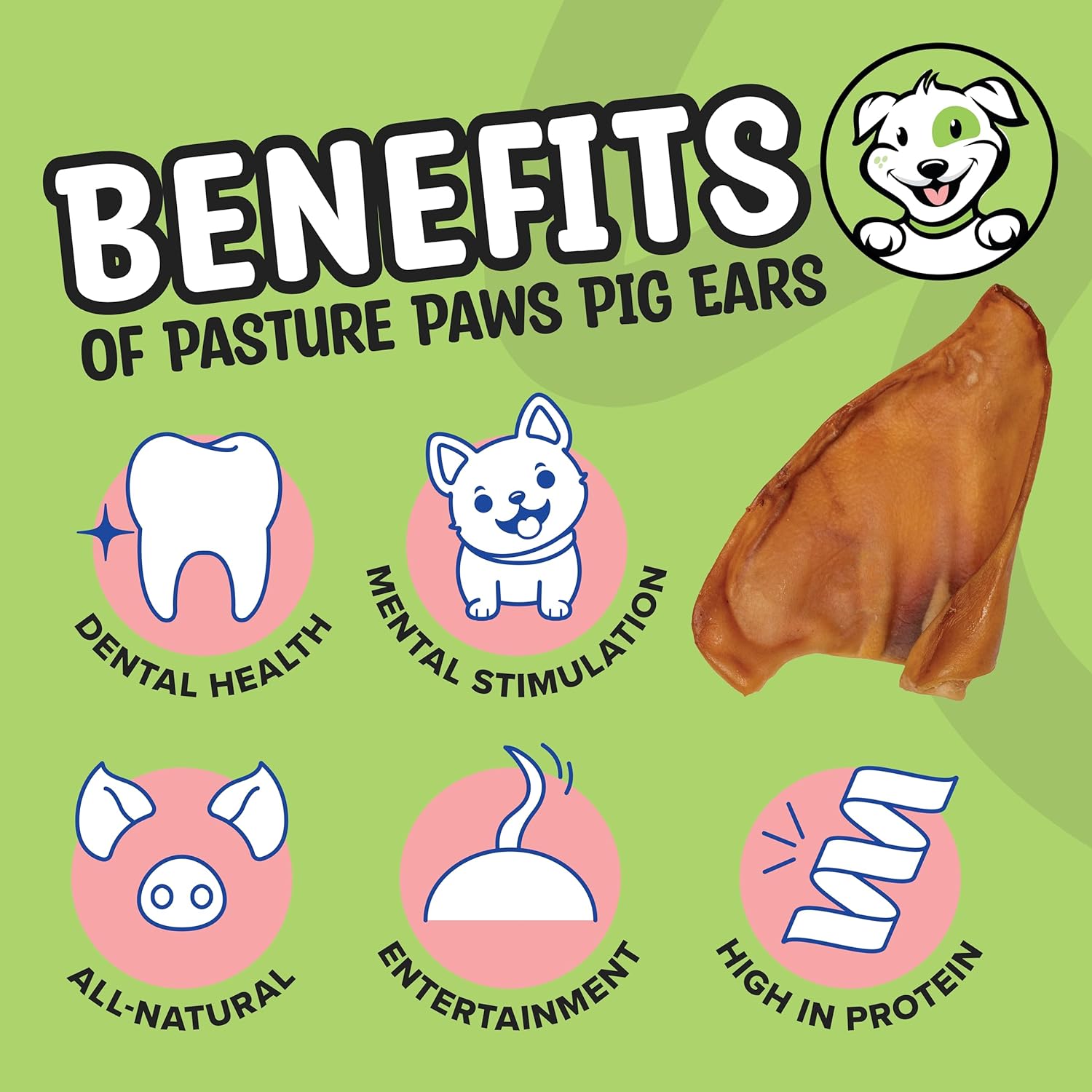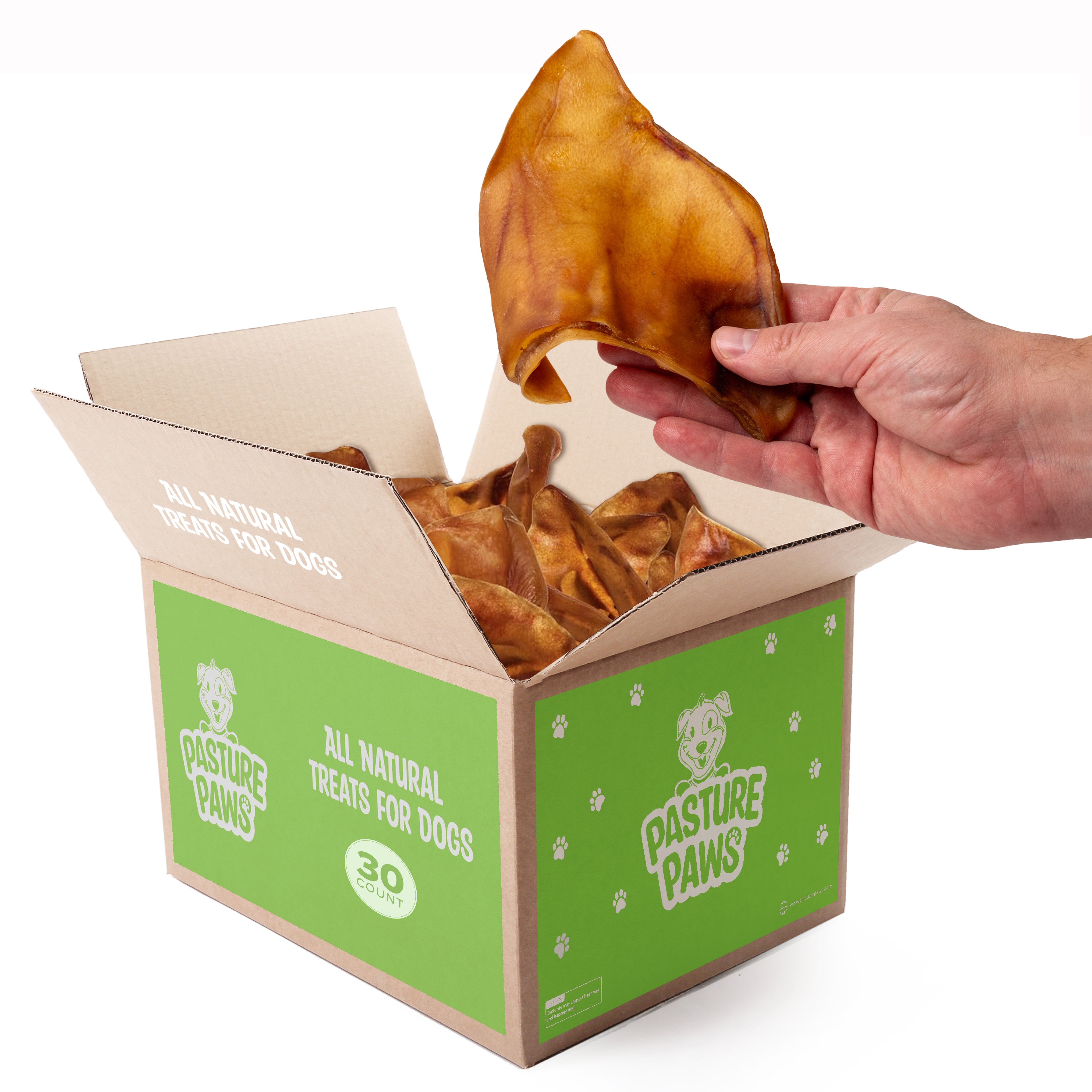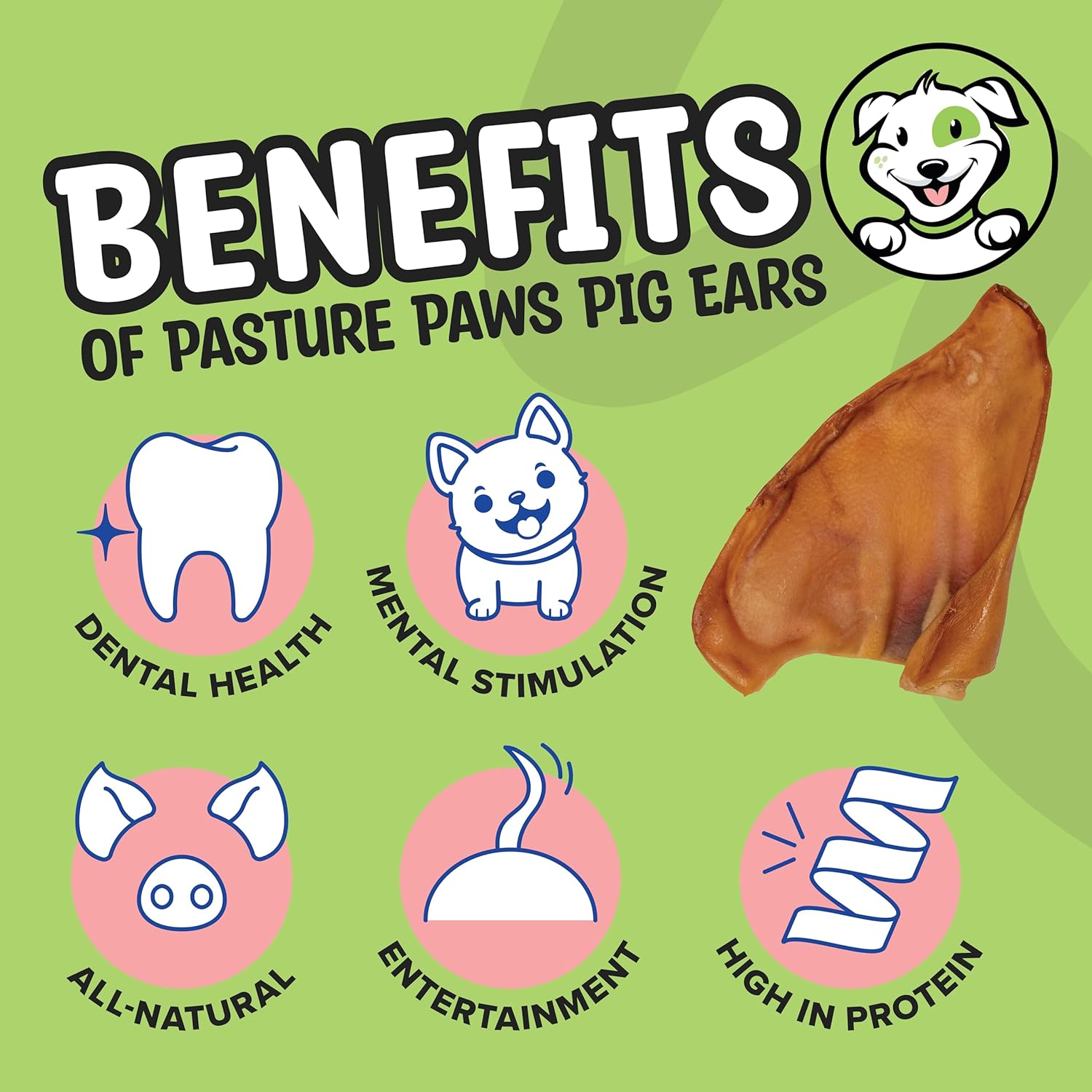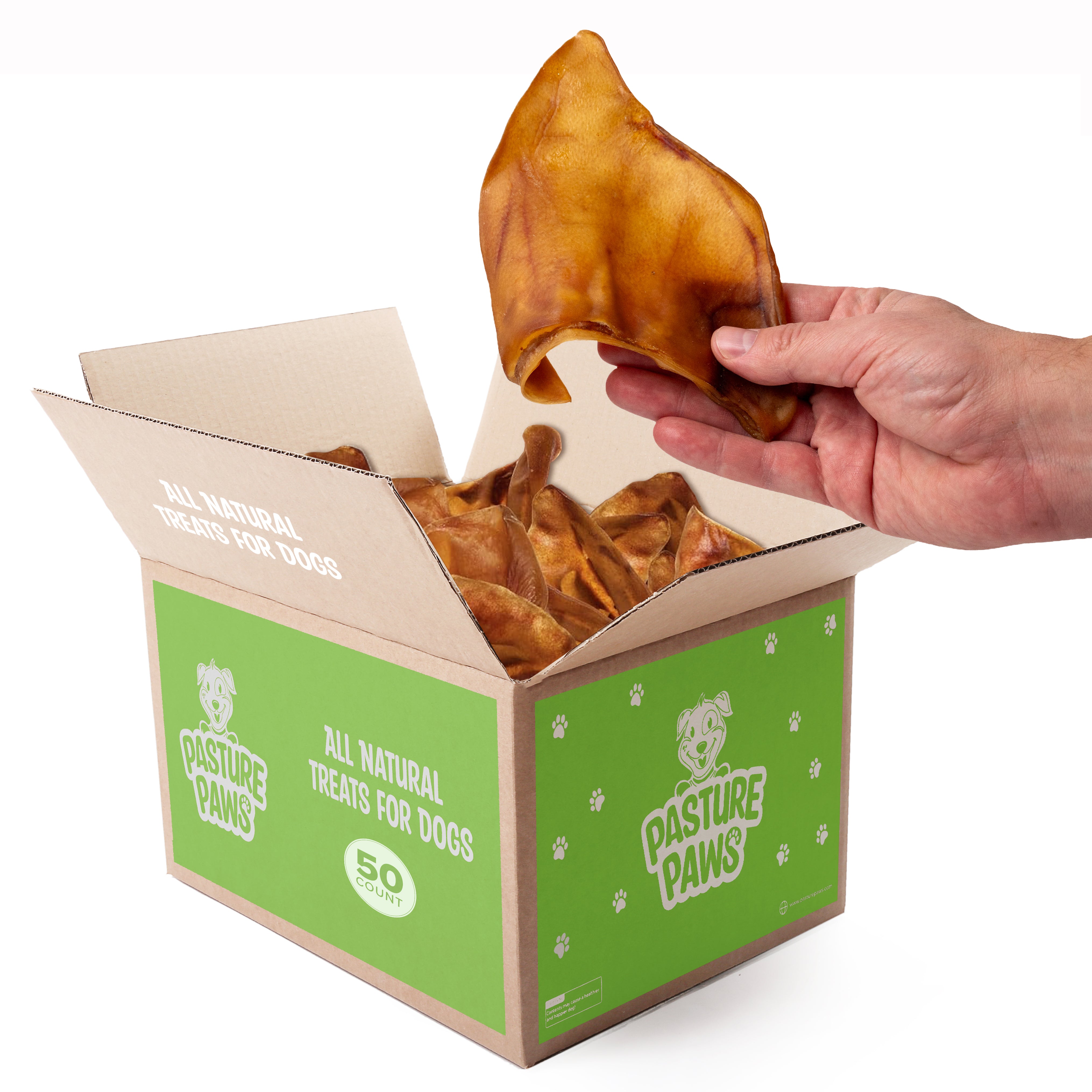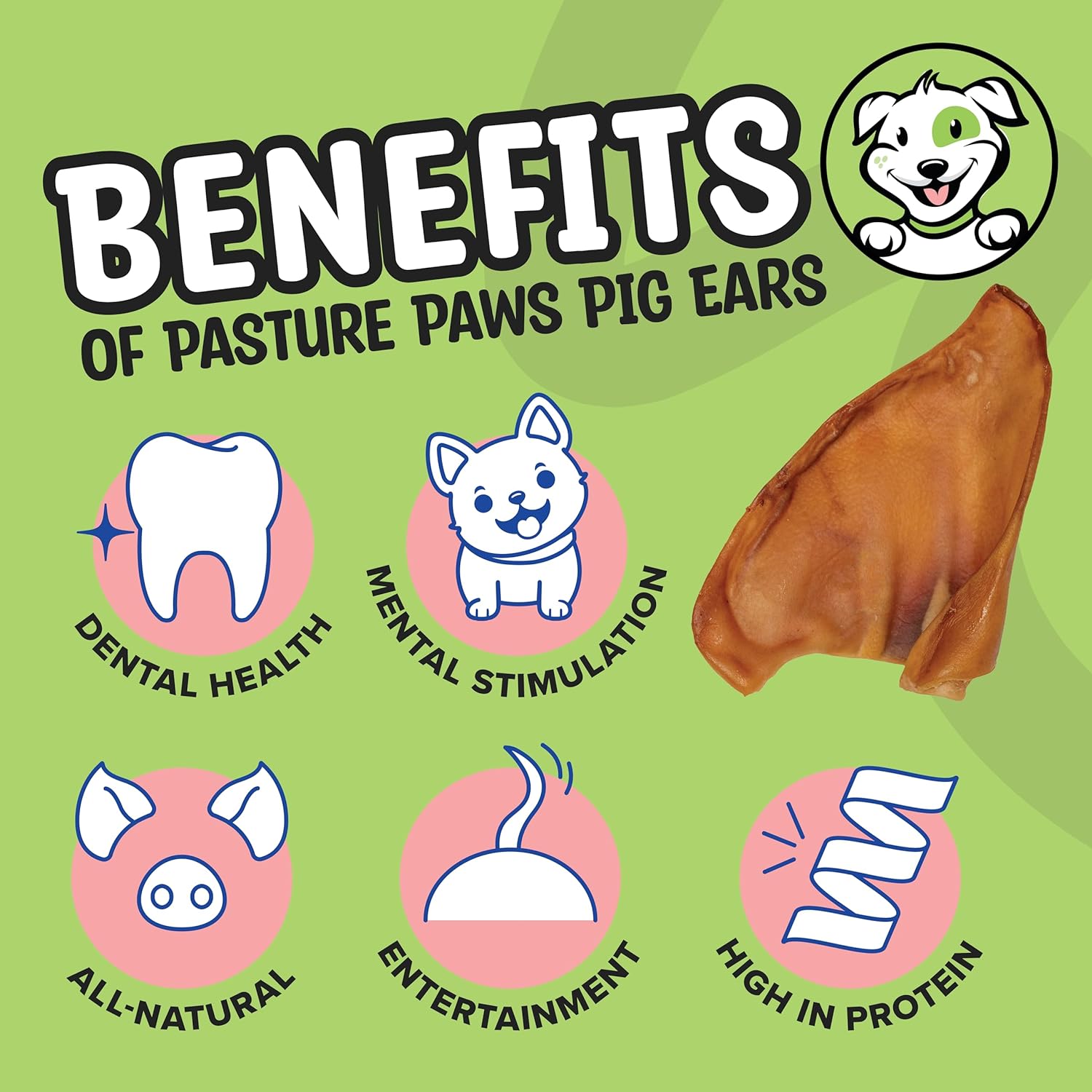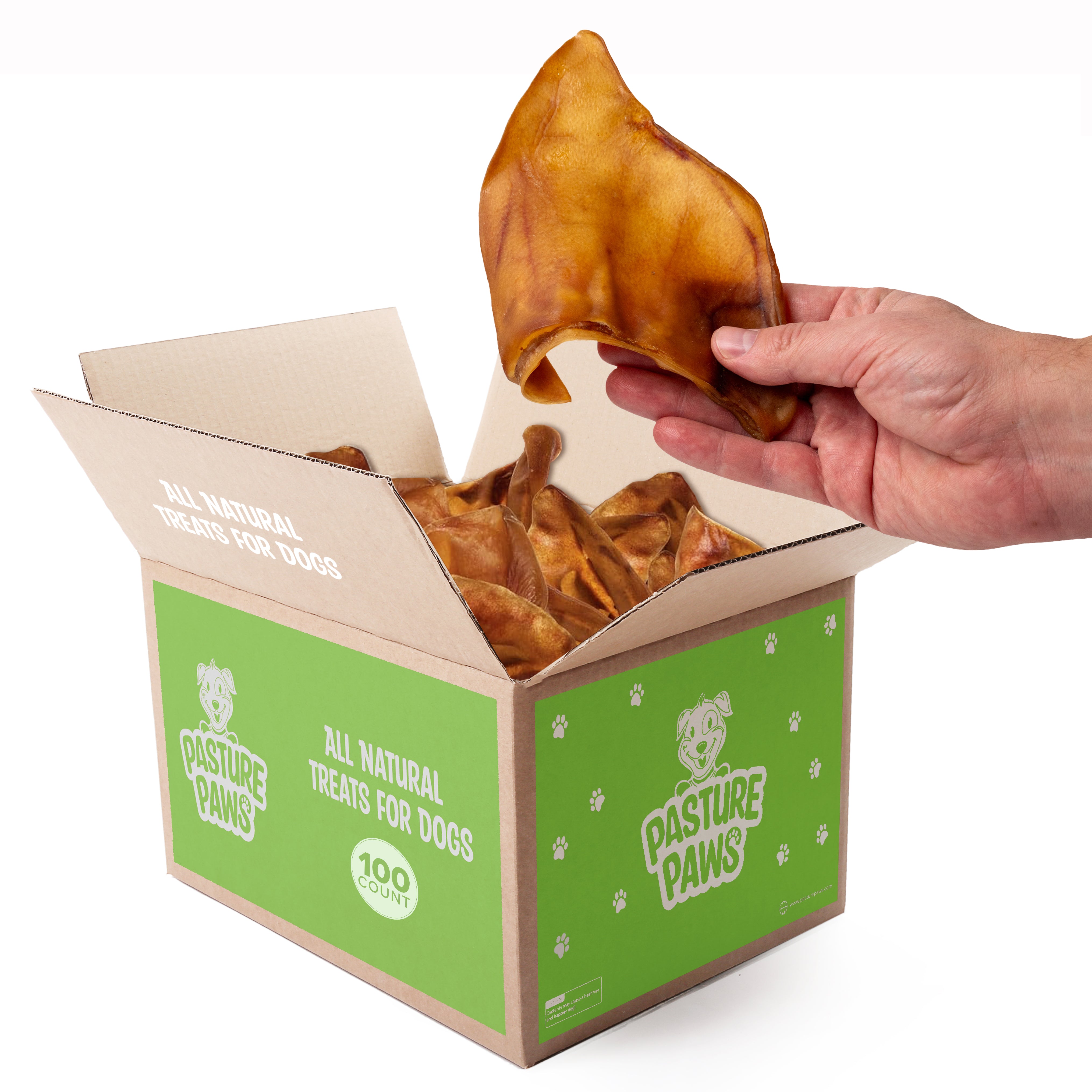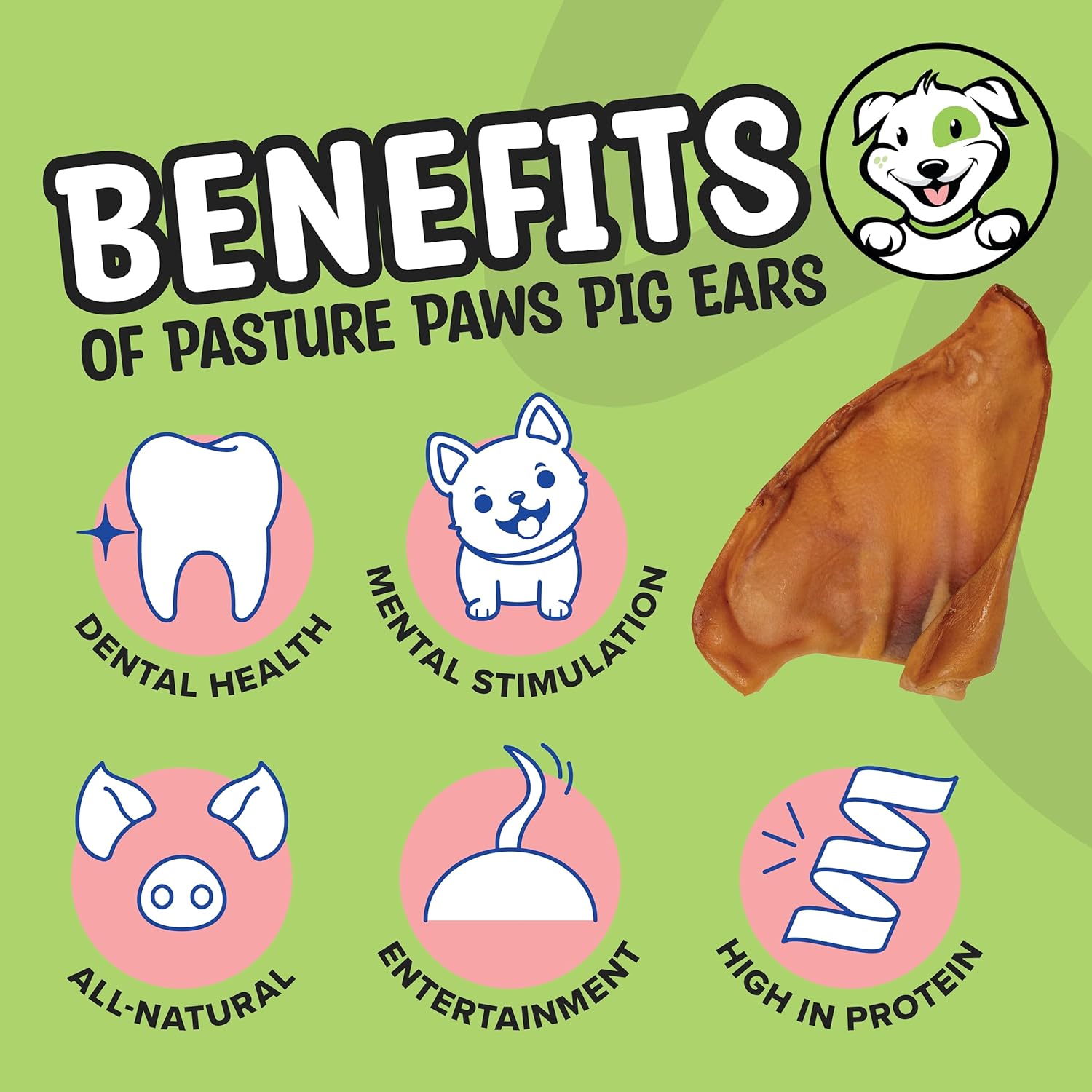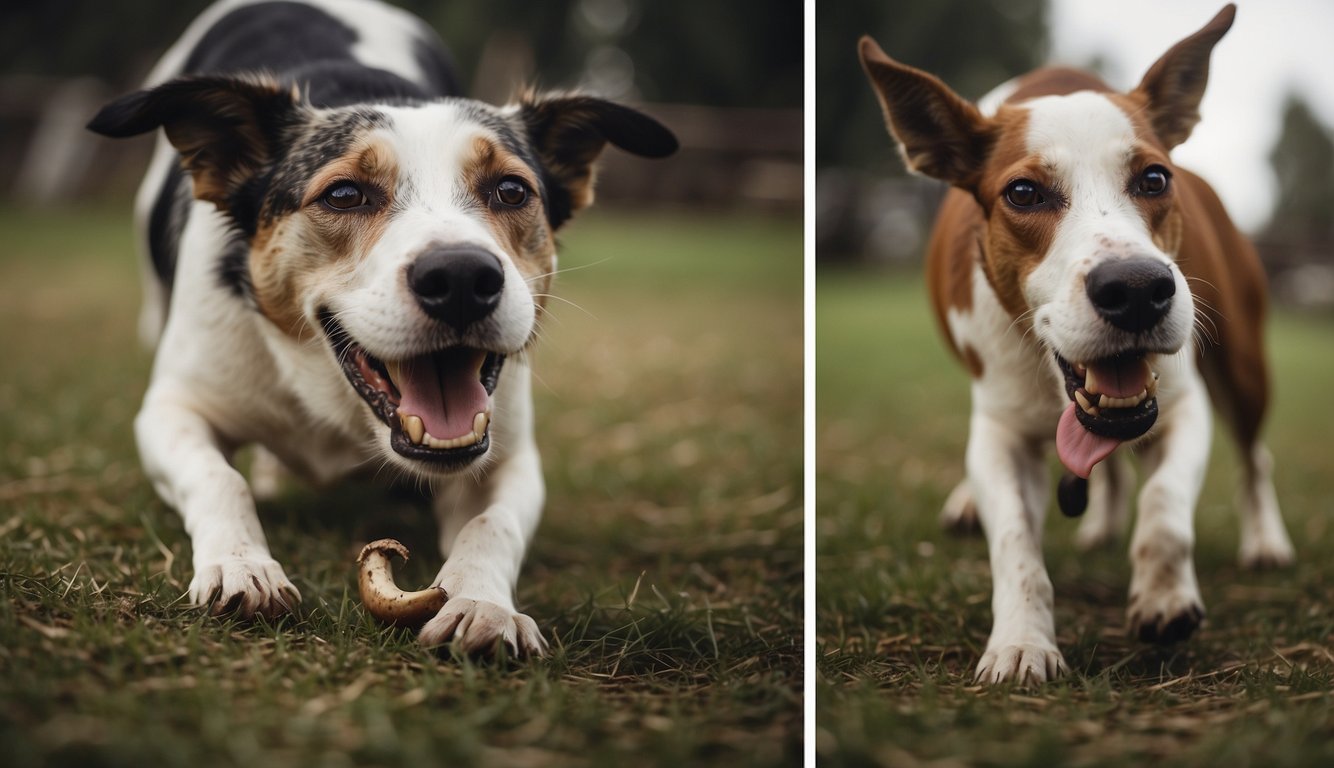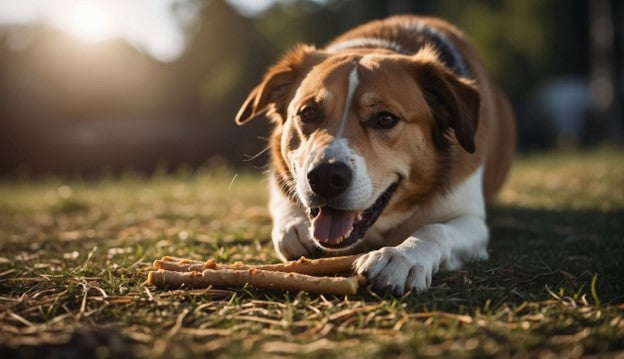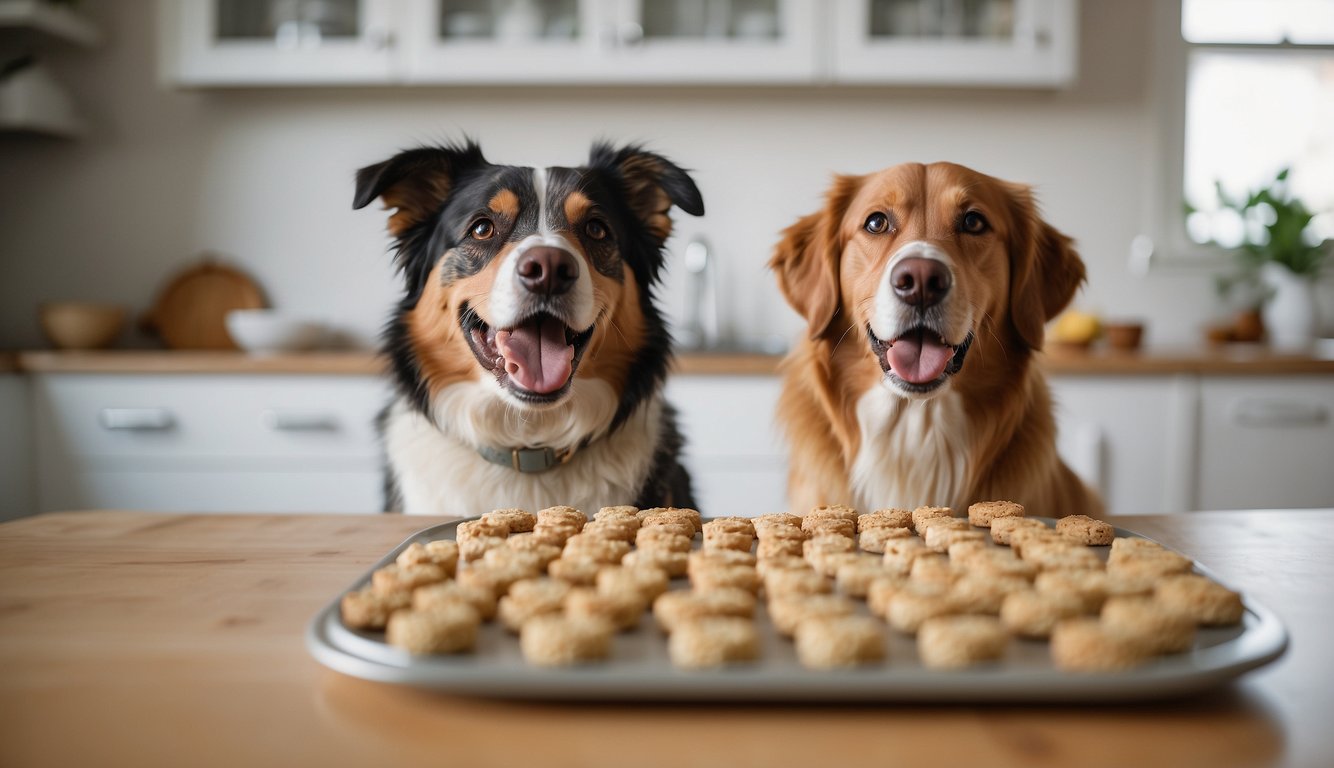If you're a dog owner, you're likely seeking safe and healthy chew treats for your furry friend. Cow hooves for dogs are a popular option, but are they safe? This article explores the pros and cons of cow hooves for dogs as a natural chew and suggests some alternatives.
Cow hooves, the hard outer part of a cow's foot, are sold as long-lasting dog chews. Some pet owners swear by them, but they can cause dental damage, choking, or intestinal blockages, and they have little nutritional value.
We'll explore the pros and cons of cow hooves as a natural dog chew, and provide you with some alternatives to consider.
The Benefits of Cow Hooves for Dogs: A Comprehensive Guide

If you're looking for an affordable and cost-effective way to keep your dog happy and healthy, cow hooves may be just what you need.
These natural treats offer a range of benefits, from improving your dog's dental health to providing stress relief.
The Nutritional Value of Cow Hooves for Dogs
Cow hooves are a natural product that offer a range of nutritional benefits for your dog.
They contain high levels of protein, which is essential for maintaining your dog's overall health and wellbeing.
Additionally, cow hooves contain fats, vitamins, and minerals that can help support your dog's immune system, digestive health, and more.
How Cow Hooves Can Improve Your Dog's Dental Health
One of the biggest benefits of cow hooves for dogs is their ability to improve your dog's dental health.
Chewing on cow hooves helps to remove plaque and tartar from your dog's teeth, which can help prevent dental problems such as tooth decay and gum disease.
Additionally, cow hooves help to strengthen your dog's jaw muscles, which can improve their overall dental hygiene.
Cow hooves have been recognized by the Veterinary Oral Health Council (VOHC) for their dental benefits. The VOHC is an independent organization that evaluates products for their ability to promote dental health in dogs and cats.
The Other Benefits of Cow Hooves for Dogs: From Joint Health to Stress Relief
In addition to their nutritional and dental benefits, cow hooves offer a range of other benefits for your dog.
Consider safer alternatives like bully sticks, antlers, raw bones, and cow hooves are safe for dogs. These chews provide mental stimulation, help clean teeth, and satisfy the natural urge to chew. Chewing on cow hooves can also help relieve stress and anxiety in dogs, particularly beneficial for those with separation anxiety or other forms of stress. Always supervise your dog with any chew.
Cow hooves can also help to promote joint health in dogs.
The act of chewing on cow hooves helps to exercise your dog's joints, which can help prevent joint problems such as arthritis.
Risks and Considerations of Cow Hooves

When it comes to feeding your dog cow hooves, there are some risks and considerations that you should be aware of.
While cow hooves can provide a long-lasting and satisfying chew for your dog, there are potential hazards that you should take into account.
One of the primary concerns with cow hooves is the risk of choking.
If your dog bites off a large piece of the hoof, it could become lodged in their throat and cause them to choke.
To reduce the risk of choking, it's important to supervise your dog while they are chewing on a cow hoof and to take the hoof away if it becomes too small or if your dog is biting off large chunks.
Another risk to consider is the potential for dental damage.
Cow hooves can be very hard and may cause splintering or breakage of your dog's teeth if they chew too aggressively.
To minimize the risk of dental damage, it's important to select cow hooves that are appropriately sized for your dog's mouth and to monitor their chewing behavior closely.
In addition to the risk of choking and dental damage, cow hooves can also pose a risk of intestinal blockage.
If your dog swallows a large piece of the hoof, it could become lodged in their digestive tract and cause a blockage.
To reduce the risk of intestinal blockage, it's important to supervise your dog while they are chewing on a cow hoof and to take the hoof away if they are biting off large chunks or if they appear to be swallowing the hoof whole.
Hooves for Dogs: Usage and Safety Guidelines

When it comes to giving your dog cow hooves, it is important to follow certain usage and safety guidelines to ensure your dog's health and safety.
Supervision
First and foremost, it is important to supervise your dog while they are chewing on cow hooves.
This is especially important for aggressive chewers who may be more prone to choking or tooth fractures.
Moderate chewers may also benefit from supervision to ensure they are not ingesting large pieces of the hoof.
Feeding Guide
It is recommended to limit the amount of cow hooves you give your dog in a day.
A general rule of thumb is to give your dog one cow hoof per day, or less if your dog has a sensitive stomach.
It is also important to consider your dog's overall diet and ensure that cow hooves are not the main source of nutrition.
Additives
Some cow hooves may come with added flavors or additives, such as peanut butter.
While these may be enticing to your dog, it is important to check the ingredients list and ensure that they are safe for your dog to consume.
Smell and Odor
Cow hooves have a distinct smell that may be unpleasant to some dog owners.
It is important to consider this when giving your dog cow hooves, especially if they will be chewing on them indoors.
It may be helpful to give your dog cow hooves outside or in a well-ventilated area.
Are Cow Hooves Safe for Dogs?
Cow hooves can be a safe and healthy chew option for dogs when given in moderation and under supervision.
However, there are some risks involved, such as the potential for mouth injuries and tooth fractures.
It is important to weigh the benefits and risks before giving your dog cow hooves.
Alternatives and Comparisons
If you're looking for alternatives to cow hooves for your furry friend, there are a few options to consider. Here are some comparisons to help you make an informed decision:
Bully Sticks
Bully sticks are a popular alternative to cow hooves.
They are made from dried bull or steer pizzle and are high in protein.
Bully sticks are also easier to digest than cow hooves, making them a good choice for dogs with sensitive stomachs. However, they can be expensive and may have a strong odor that some people find unpleasant.
Cattle Bones
Cattle bones are another option to consider.
They are high in calcium and other minerals, and can help keep your dog's teeth clean.
However, it's important to choose a bone that's the right size for your dog, as large bones can be a choking hazard.
It's also important to supervise your dog while they are chewing on a bone, as they can break off small pieces that can be harmful if swallowed.
Conclusion
Cow hooves can be a beneficial chew for your dog, offering dental benefits and stress relief. However, it's essential to weigh the risks, such as dental damage and choking hazards, before deciding if they're right for your furry friend. Personally, I've found that understanding the pros and cons helps make informed choices that prioritize my pet’s health and happiness.
Always supervise your dog while they enjoy their chews, and consider alternatives like bully sticks or antlers if cow hooves seem too risky. Your dog’s well-being is worth the effort of finding the safest and most enjoyable treats for them. Cow hooves for dogs: a natural chew treat with benefits and risks. Visit Pasture Paws to learn more and find safer alternatives for your pet!
Frequently Asked Questions

Are cow hooves a safe chew option for dogs?
Yes, cow hooves can be a safe chew option for dogs when prepared and given properly.
However, it's important to supervise your dog while they chew on cow hooves to prevent choking or other potential hazards.
Additionally, some dogs may have allergies or sensitivities to cow products, so it's important to monitor your dog's reaction to cow hooves and discontinue use if any negative symptoms arise.
What are the potential benefits of giving dogs cow hooves?
Cow hooves can provide a number of benefits for dogs.
Chewing on cow hooves can help reduce boredom and prevent destructive behavior due to anxiety or restlessness.
The natural texture of the hoof can also massage gums, which may aid in reducing plaque buildup.
Cow hooves can also be a good source of calcium, which is essential for strong bones and teeth.
How can you properly prepare cow hooves for canine consumption?
Before giving your dog a cow hoof, it's important to properly prepare it.
First, ensure that the cow hoof is from a reputable source and has been thoroughly cleaned and dried.
You can also fill the cow hoof with a meaty paste to make it more enticing for your dog.
When giving your dog a cow hoof, be sure to monitor them to prevent choking or other potential hazards.
Can dogs fully digest cow hooves, or do they pose a choking hazard?
While cow hooves are generally safe for dogs to chew on, they can pose a choking hazard if not given properly.
It's important to monitor your dog while they chew on cow hooves to prevent choking or other potential hazards.
Additionally, cow hooves are made up of keratin, which is hard to digest, so it's important to limit the amount of cow hooves your dog consumes.
What are the best practices for selecting cow hooves for dogs?
You should also look for cow hooves that are the appropriate size for your dog and monitor them while they chew to prevent choking or other potential hazards.
Additionally, be sure to check for any signs of damage or wear before giving your dog a cow hoof.
Do cow hooves have a strong odor, and how can this be managed?
Cow hooves can have a strong odor, which may be unpleasant for some dog owners.
To manage the odor, you can store the cow hooves in an airtight container or in the freezer.
You can also try soaking the cow hooves in water or vinegar before giving them to your dog to help reduce the odor.
